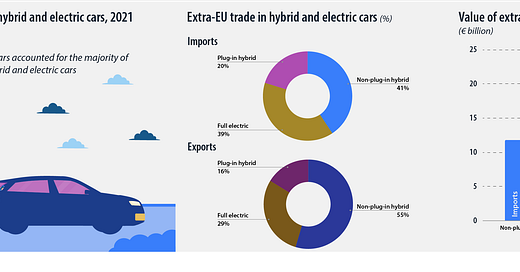Mobility Matters Extra - The new business reality in London
Good day my good friend.
For some time now, we have been discussing what the new normal will be for transport after COVID-19. Some of the early results are coming in: bus use down, rail shifting from peak to off-peak travel, cycling up a bit (but varied), more home-working. And all of this has a substantial impact on the business of running transport in London.
If you have any suggestions for interesting news items or bits of research to include in this newsletter, you can email me.
James
The business of running transport in London
This week, Transport for London published its Draft Business Plan, outlining the recovery of the business of running a transport network in a busy capital city. Running such a network has been challenging over the last few years. Not least that because, unlike almost all transport authorities in Europe, Transport for London has had to cover its costs through fare-paying passengers (and occasional government grants). But the business plan sets out the reality starkly.
In brief: 80% of passengers are back, major transport projects are still being committed to, £330m of savings need to be found every year, fares will have to rise to cover costs and to fund additional investment in active travel. Which has also been cut to £69m. Passenger fare revenue must rise from £3bn in 2021/22 to £6bn in 2025/26.
Its a bit of a continuation of austerity in some ways. Cut costs, cut some services, increase revenues, all to balance the balance sheet. There is some significant investment, including the refreshment of much of the Tube’s ageing rolling stock. Maybe the expansion of ULEZ is an example of seeking to expand alternative revenues, even though there are clear benefits in transport and air quality terms.
But all of this points to a wider issue: public transport revenues are struggling to come back to what they once were. That leaves two options: subsidise, or do what TfL is doing: get more money in to plug the gap, and cut everywhere that isn’t core to what you do. We often think of transport as a social good, and it is. But somewhere, someone has to make the numbers add up. And TfL are trying to do just that.
Graph of the week

Electric cars relies on trade, and good trade links, and a buoyant market in electric vehicles. New data from Eurostat shows that the imports and exports of electric vehicles to Europe has grown significantly in 4 years, and that the continent exports more than it imports.
Something else interesting
Geoff Marshall likes a cab ride. But instead of ‘driving’ the DLT, he gets a ride on the Elizabeth Line. And its great.


